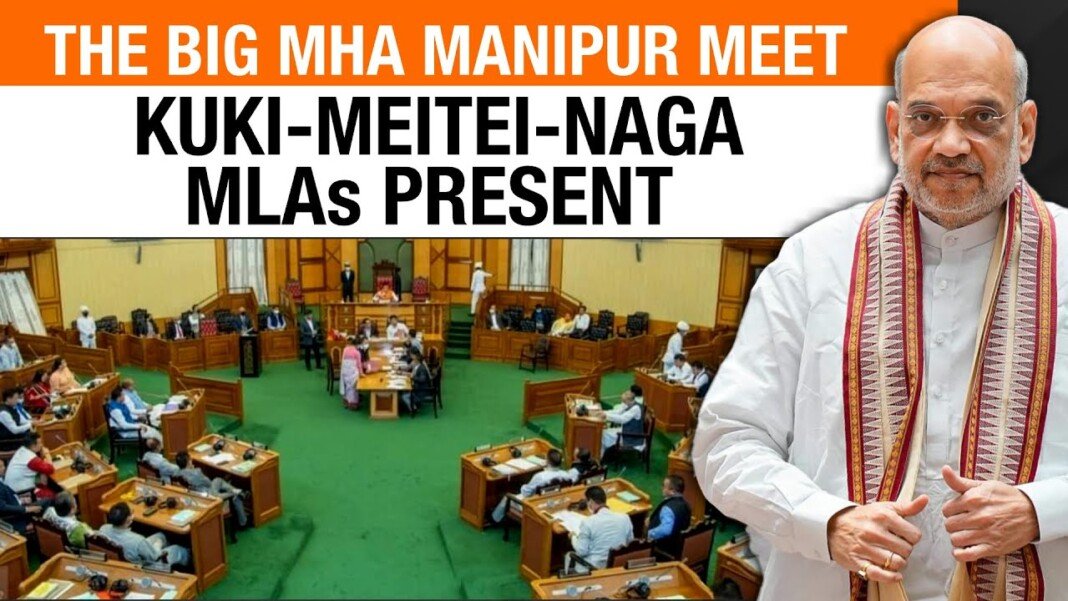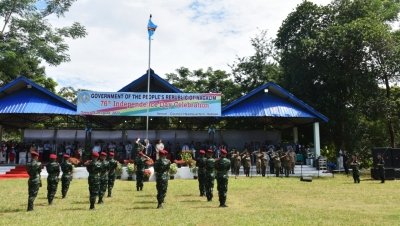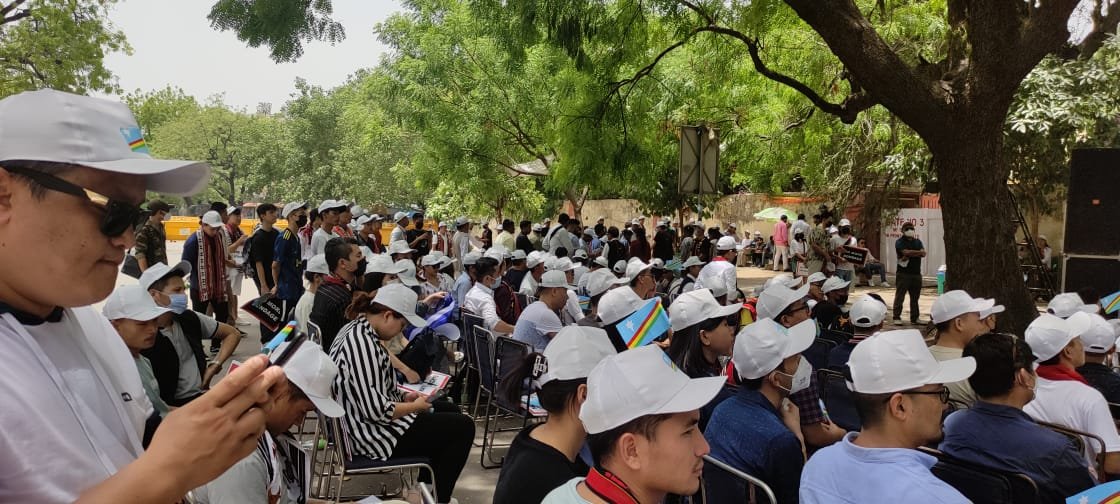HT Digital
Wednesday, October 16: In an urgent move to address the ongoing ethnic violence in Manipur, the Ministry of Home Affairs (MHA) convened a high-level meeting in New Delhi with representatives from the state’s major communities, including Meitei, Kuki-Zo, and Naga leaders. This marks the first time that representatives from these ethnic groups have come together for talks since violent clashes erupted on May 3, 2023. The violence, which has already claimed more than 230 lives and displaced over 59,000 people, has deepened ethnic divisions in the state, particularly between the Meitei and Kuki-Zo communities.
Among the attendees were prominent Manipur political leaders, including Meitei MLAs Dr. Sapam Ranjan, Govindas Konthoujam, and Thounaojam Basanta Kumar, along with Kuki-Zo representatives Letpao Haokip, Haokholet Kipgen, Paolilien Haokip, and Naga leaders Ram Muivah and Losii Dikho. The meeting was chaired by BJP Northeast Coordinator MP Dr. Sambit Patra and MHA interlocutor A.K. Mishra, who oversaw the discussions aimed at finding a peaceful resolution to the conflict.
The primary objective of the meeting was to bridge the ethnic divide that has fueled the unrest in Manipur. The violence, which began in early May, has primarily affected the Kuki-Zo and Meitei communities, with tensions between the two groups escalating over demands for greater autonomy. The Kuki-Zo group used the meeting to reiterate its demand for a separate administration, a proposal that the Manipur state government continues to strongly oppose.
During the two-hour meeting, central government representatives called on all sides to reject violence and focus on saving innocent lives. While the discussions were framed as a step towards peace, reports suggest that before the joint talks began, the MHA held separate consultations with each community. This approach reflects the complexity of the situation, as tensions remain high and the gap between the demands of the Meitei and Kuki-Zo communities continues to widen.
The outcome of the meeting remains uncertain, with deep ethnic divisions still dominating the political landscape in Manipur. While some officials expressed cautious optimism about the potential for progress, others acknowledged the challenges of uniting the different communities. The full details of the discussions have not yet been made public.
As the MHA seeks to address the root causes of the violence, the situation in Manipur remains volatile. On October 15, the Coordinating Committee of Manipur called for a 12-hour total shutdown across the state, marking “National Black Day” in protest of the alleged forced annexation of Manipur by India on October 15, 1949. The shutdown, which lasted from 6 AM to 6 PM, underscores the continued tension and unrest in the region.
The MHA’s meeting with representatives from Manipur’s ethnic communities is being viewed as a critical step in addressing the crisis, but the road to peace appears long and uncertain. The demand for a separate administration from the Kuki-Zo community, combined with the opposition from the state government and ongoing ethnic tensions, suggests that the conflict in Manipur may take time to resolve.







